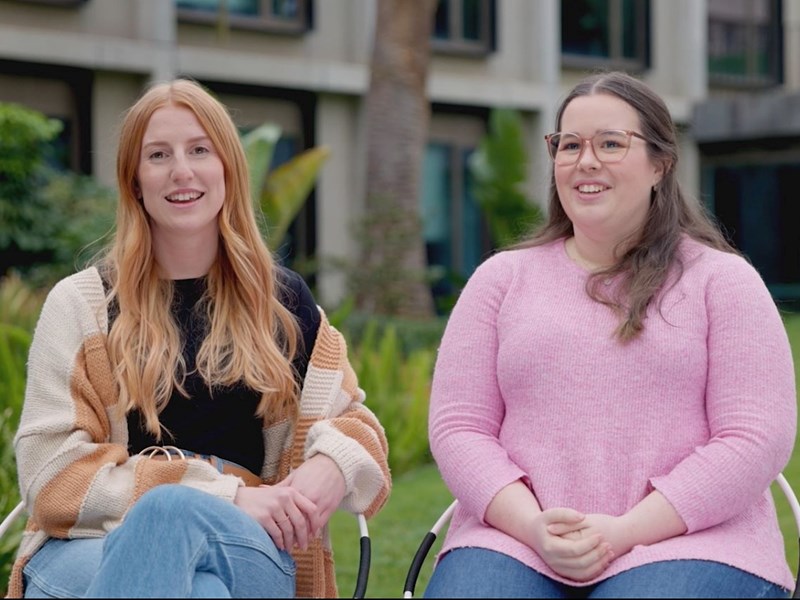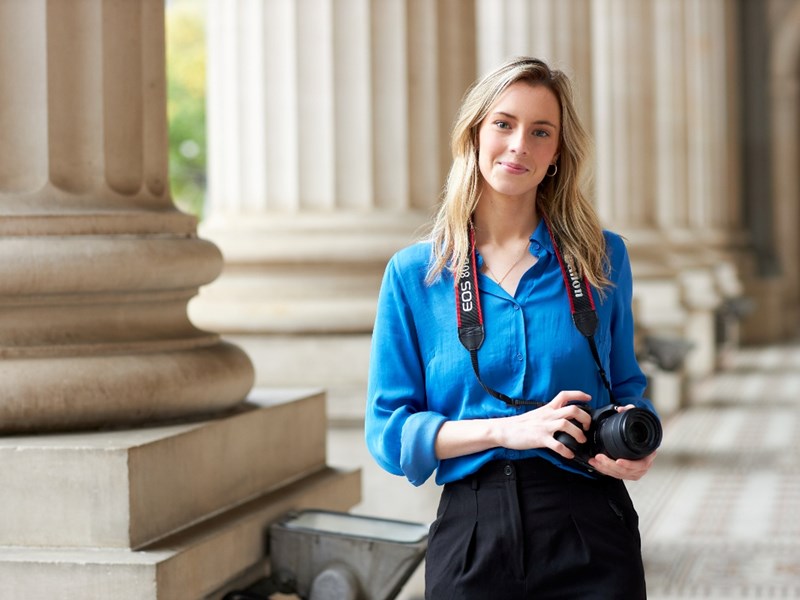Leading by example
21 October 2022
Young Victorians share their thoughts about leadership in a new video series produced by a young filmmaker.
State of the Future, one of several youth-led projects initiated by the Parliament of Victoria, provides young people with the opportunity to discuss the leadership qualities they most value.
The six-part video series features a diverse group of young leaders from across the state who have had a positive impact on their local community.
The project gives each of them the opportunity to showcase the initiatives they are involved in and discuss what they seek from Victoria’s leaders.
Darcy Scales, parliament’s youth associate responsible for the series, says the project shows that young people have a ‘real want for leaders to be authentic and genuine’.

Many interviewees also expressed a desire for leaders to take a more empathetic and community-centred approach to decision-making.
Kaif Ul Wara, founder of Blooming Innovators, a creative arts group for young people, says leaders need to understand the communities they represent, including youth, to have a real impact.
‘It’s really important that our leaders work for the people that they represent, are honest and transparent, and are great communicators,’ she says in her interview.
‘It is only then they’ll be able to work really effectively and create change that’s needed.’
Each of the individuals involved in the interview series also highlighted the need to amplify the voices of young people and for Victoria’s leaders to adopt innovative measures to achieve meaningful change.

In their interview, Youthrive representatives Hannah Humphries and Stephanie Hartshorn note that providing individuals with a platform to voice concerns is particularly important for those—like the rural young people they support—who have more limited access to services.
‘I think, historically, we’ve got a lot to learn from good and bad leadership,’ Hannah says.
‘Most importantly, how poorly things can end when the people decisions are being made for aren’t consulted in the process.’
For examples of good leadership, Drew Paten—proud Gunai/Kurnai man and coordinator of RMIT University’s On Country program—says we need only look to our First Nations communities and the years of collective knowledge that ‘sits in our very backyard’.
Drew believes an exchange of wisdom is necessary for Victoria’s systems to thrive and hopes leaders will adopt an approach that ensures community members are ‘at the table’—particularly when decisions are being made.
‘I’ve started to really understand what the communities are capable of when they come together and, more importantly, what young people are capable of when they’re given a platform and they’re given the voice,’ he says.
‘When it’s done right, when it’s done effectively…you can see magic happen.’

The interview series highlights that Victoria has a number of young leaders and change-makers with powerful voices who are already very active in the community.
Many were motivated by the struggles of those around them and built initiatives from the ground up in a bid to make a difference and improve lives.
Caleb Ostwald, director of sustainability social enterprise Verve Collective, thinks young people have the ‘hunger for change’ that is necessary to inspire innovative ideas and drive social impact.
‘I think young people…particularly in Victoria, are rising to the challenge of trying to make the world a bit of a better place by being leaders in every domain,’ he says.
But Kergen Angel, Victorian Youth Governor for 2022, is concerned that too many young people believe they don’t ‘have the right to be engaged in our political processes’.
Kergen believes more ‘intentional facilitation’ is required to give young Victorians ‘a voice on the global stage’ and create a more representative parliament.
He wants to see young people given more opportunities to participate in decision-making where they can use their ‘superpower of global connectedness…to combat the big global issues of our time’.
For Jed Zimmer, mental health advocate and Bendigo’s Young Citizen of the Year 2022, hardship has taught him that leadership is within everyone’s grasp.
‘Leadership is something everyone can possess and develop over time,’ he says.
‘I think it’s no different to that of a muscle that you can train, build, grow.’
State of the Future project leader, Darcy Scales, hopes the series empowers Victorians to engage with members of parliament and begin driving change.
‘I hope people see you don’t have to wait; you don’t have to wait until you’re a certain age to start creating things and make change,’ she says.
‘You can just do it now.’
The State of the Future videos will be posted to the Victorian Parliament's YouTube channel over coming weeks.
Article by Ellie Claringbold, who participated in the Parliament Express youth initiative. That 12-week program conducted by Express Media in partnership with the Parliament of Victoria has provided young writers with the opportunity to hone their skills through mentoring and various engagement opportunities, leading to the production of content for parliament’s website and social media.